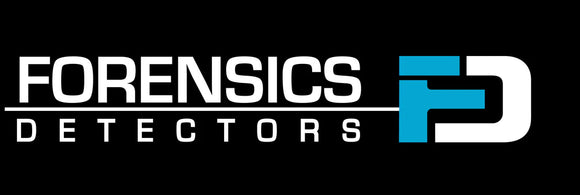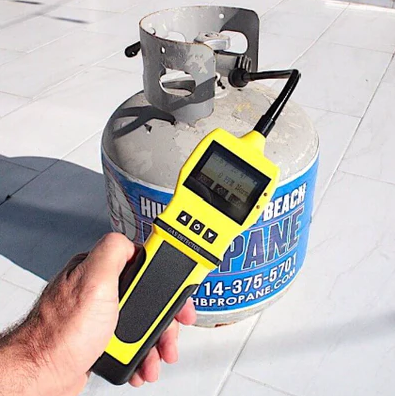A Propane Leak Detector is a gas detector device designed to identify and locate propane gas leaks. It uses sensitive sensors to detect propane gas concentrations in the air, providing early warning through digital readings and alarms before levels become dangerous. These detectors are essential for RVs, homes, and businesses using propane systems to ensure safety and prevent potential fire hazards.
Pros |
Cons |
|
✅ Sensitivity: High-accuracy detection of propane gas leaks at low concentrations. ✅ Response Time: Quick alert system for immediate leak identification. ✅ Portability: Lightweight and compact for easy handling and transport. ✅ Safety Features: Multiple alarm types for hazard notification. |
⛔ Calibration: Requires periodic sensor calibration for accuracy. ⛔ Battery Dependent: Regular charging or battery replacement needed. ⛔ Environmental Factors: Temperature and humidity can affect readings. ⛔ Maintenance: Regular sensor checks and cleaning required. |
What Is The Best Propane Leak Detector?
The best propane gas leak detectors are as follows:
- Forensics Detectors Propane Leak Detector
- Klein Tools Combustible Gas Leak Detector
- UEI Gas Leak Detector
- Ridgid Combustible Gas Leak Detector
- Inficon Gas Leak Detector
- Sensit Leak Detector
- Extech Gas Leak Combustible Detector
Which Gases Are Detected?
Detectable Gases detected by the Propane Leak detector include Propane, Acetone, Acetylene, Alcohol, Ammonia, Butane, Ethanol, Ethylene Oxide, Gasoline, Hexane, Methane, Naphtha, Natural Gas, Paint Thinners, and various Solvents.
Who Uses a Propane Leak Detector?
Several individuals and professionals use propane leak detectors for various purposes. Here are some examples:
- Homeowners: Homeowners who use propane as a fuel source for heating, cooking, or other appliances.
- Propane Suppliers: Companies or individuals involved in supplying propane gas for residential, commercial, or industrial purposes often use propane leak detectors as part of their safety protocols. These detectors help them identify leaks in storage tanks, pipelines, or other equipment used for propane distribution.
- Construction and Maintenance Professionals: Contractors, builders, and maintenance personnel who work with propane-powered equipment or appliances, such as construction heaters, forklifts, or grills, use propane leak detectors to ensure the safety of their work environments. These detectors enable them to detect leaks and take necessary precautions to prevent accidents or damage.
- RV Owners and Campers: People who own recreational vehicles (RVs) or go camping with propane-fueled appliances, such as stoves, refrigerators, or heaters, often carry propane leak detectors as a safety measure. These detectors help them identify any gas leaks within the RV or camping area, allowing them to take prompt action to prevent accidents or gas-related incidents.
- Industrial Facilities: Various industrial settings, such as manufacturing plants, warehouses, or processing facilities, may utilize propane for heating, power generation, or industrial processes. Propane leak detectors are employed in such facilities to monitor for leaks in propane storage tanks, distribution systems, or equipment, ensuring the safety of workers and preventing potential fire hazards.
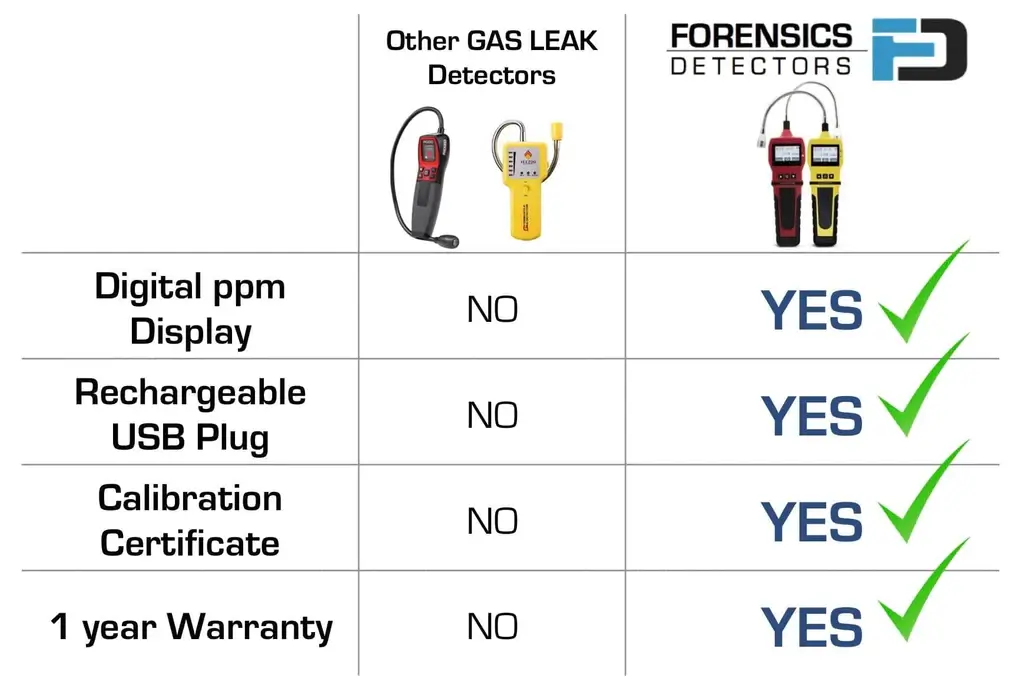
What about Propane Bump Testing?
Ensuring the proper operation of your propane leak detector is crucial. Does it even work? To confirm its functionality and build confidence, it is recommended to perform a bump test. This involves exposing the leak detector to some propane gas.
Simply expose the gas sensor to some stovetop propane gas to induce and confirm a reaction. If you do not have that, you can use natural gas or another combustible as a surrogate gas.
What is Propane Gas?
Propane gas, also known as liquefied petroleum gas (LPG), is a flammable hydrocarbon gas that is commonly used as a fuel source for various applications. It is derived from natural gas processing and petroleum refining.
Propane is popular for several reasons:
1. Versatility: Propane is a versatile energy source that can be used for various purposes, including heating homes and buildings, cooking, water heating, drying clothes, powering vehicles, and operating appliances such as stoves, ovens, grills, and generators. Its wide range of applications makes it popular among homeowners, businesses, and industries.
2. Clean Burning: Propane is considered a clean-burning fuel compared to other fossil fuels like coal or oil. When burned, it produces lower levels of greenhouse gas emissions and air pollutants such as carbon dioxide, nitrogen oxides, and particulate matter. This cleaner combustion makes it a favorable choice for environmentally conscious individuals and organizations.
3. Energy Efficiency: Propane has a high energy density, meaning it contains a significant amount of energy in a relatively small volume. This characteristic makes it an efficient fuel, allowing for the production of more heat or power per unit of fuel consumed. It provides reliable and efficient energy for various applications, including space heating, water heating, and industrial processes.
4. Portability: Propane is stored and transported in a liquid state under moderate pressure, making it highly portable. This feature is advantageous for applications such as camping, outdoor activities, and remote locations where access to natural gas pipelines may be limited. Propane cylinders and tanks are easily transportable, enabling users to have a readily available fuel source wherever they go.
5. Safety: Propane has built-in safety features that make it a reliable choice. It has a distinct odorant added to it, called ethyl mercaptan, which gives it a strong and unpleasant smell similar to rotten eggs. This odor helps users quickly detect leaks and take necessary precautions. Additionally, propane has a narrow flammability range, meaning it requires specific conditions to ignite, making it less prone to accidental combustion.
6. Cost-Effectiveness: Propane is often competitively priced compared to other fuels, such as electricity, oil, or natural gas. Its availability, efficiency, and favorable pricing make it an economical choice for many residential, commercial, and industrial applications.
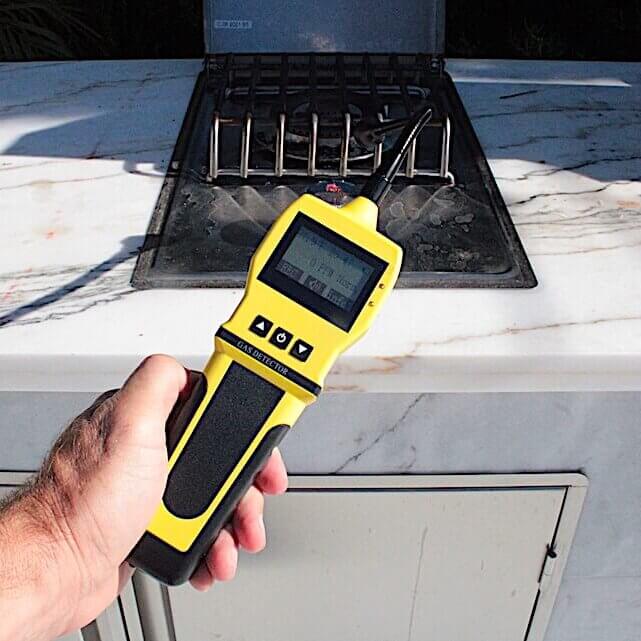
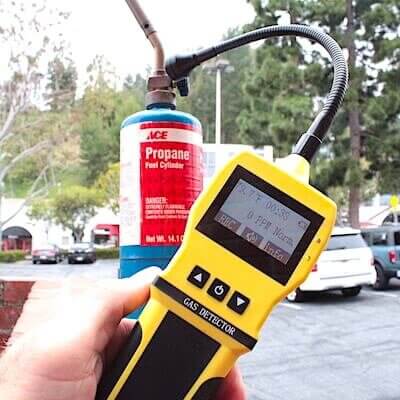
What Does A Propane Gas Leak Smell Like?
Propane has a distinctive odor to help detect leaks. Manufacturers add a chemical called ethyl mercaptan to propane, which gives it a strong, unpleasant smell similar to rotten eggs, skunk spray, or sulfur. This odor is deliberately added because propane itself is colorless and odorless, making it difficult to detect without an added scent. The purpose of the odorant is to provide a noticeable warning sign in case of a propane leak, allowing people to identify the presence of the gas and take appropriate action, such as evacuating the area and calling emergency services.
How to Detect a Propane Leak?
If you suspect you have a propane gas leak, you should use a tool such as a Propane Leak Detector.
- Begin by turning on the Propane Leak Detector and allowing it to start operating after the countdown.
- Next, perform a quick bump test to ensure the Propane Leak Detector is functional. You can do this by exposing it to some natural gas or propane from your stovetop or other controlled source. The point here is to confirm the Propane Leak Detector is indeed operating.
- Once you have completed the bump test, take the Propane Leak Detector and scan the area of interest, moving about 2 seconds per inch. Be patient and thorough to ensure you capture any natural gas.
- Typical areas of leakage occur at gas lines, joints, valves, and fittings, as well as around the gas appliances. Make sure to check these locations.
- Observe the detector's response in PPM.
- If you have confirmed a propane leak, ensure you take appropriate action to maximize safety. This may involve turning off the propane supply, evacuating the area, and contacting a qualified professional or emergency services to address the situation.
How Long Does the Propane Gas Sensor Last?
Our Propane Leak Detector is equipped with a made-in-Japan solid-state thermal semiconducting metal oxide sensor element. This is good news as these sensors have a much longer lifespan than traditional electrochemical gas sensors. In fact, semiconducting metal oxide sensors can last up to 10 years, whereas electrochemical gas sensors and catalytic gas sensors typically last only 2-3 years.
What are Safe Propane Gas Levels?
Safe propane gas levels refer to the concentration of propane in the air that is considered safe for human exposure.
Propane may explode when it accumulates in indoors, and it also may suffocate humans.
The Occupational Safety and Health Administration (OSHA) and the National Fire Protection Association (NFPA) have established guidelines for safe propane gas levels in various settings.
OSHA: In a workplace environment where propane is used or stored, OSHA sets the permissible exposure limit (PEL) at 1,000 parts per million (ppm) over an 8-hour workday. This means that the average concentration of propane in the air should not exceed 1,000 ppm during an 8-hour period.
Propane is highly flammable and is explosive when levels are over 2.2% volume (LEL).
We recommend if you do detect ANY propane gas leak it MUST be addressed. Otherwise, the leak can increase and cause a major safety hazard.
Will a Propane Gas Leak set off Carbon Monoxide Detector?
No, a propane gas leak will not set off a carbon monoxide (CO) detector. Carbon monoxide detectors are specifically designed to detect and alert occupants to the presence of carbon monoxide gas.
How Should I Store my Propane Leak Detector?
To ensure maximum sensor life and accurate measurements upon operation, it is recommended to store the Propane Leak Detector in a moderate environment with a humidity level of 50%RH and a room temperature of approximately 70F. The unit should be kept in the hard waterproof case it was sold with for optimal storage conditions.
Can You Detect A Propane Gas Leak Through Smell?
Yes, propane gas has a deliberately added rotten-egg smell (mercaptan) that makes leaks detectable. This distinct odor serves as a crucial safety feature for early leak detection.
Conclusion
- A propane leak detector is a product designed to find propane gas leaks along lines, connections, and appliances.
- They help identify and locate potential propane leaks to prevent accidents, fires, or explosions.
- Propane Leak Detectors include combustible sensor components that are sensitive to all combustibles.
- Our propane leak detector provides visual and audible alarms to alert users when the propane gas concentrations are at potentially hazardous levels.
- Propane leak detectors are used in residential homes, commercial buildings, and industrial facilities, and by professionals such as inspectors, technicians, and emergency response teams.
- See other similar products such as our Natural Gas Leak Detector.
About The Author
Dr. Kos Galatsis ("Dr.Koz") is the President of FORENSICS DETECTORS where the company operates from the scenic Palos Verdes Peninsula in Los Angeles, California. He is a subject matter expert on gas sensor technology, gas detectors, gas meters, and gas analyzers. He has been designing, building, manufacturing, and testing toxic gas detection systems for over 20 years.

Every day is a blessing for Dr. Koz. He loves to help customers solve their unique problems. Dr. Koz also loves spending time with his wife and his three children going to the beach, grilling burgers, and enjoying the outdoors.
Read more about Forensics Detectors here.
Email: drkoz@forensicsdetectors.com
